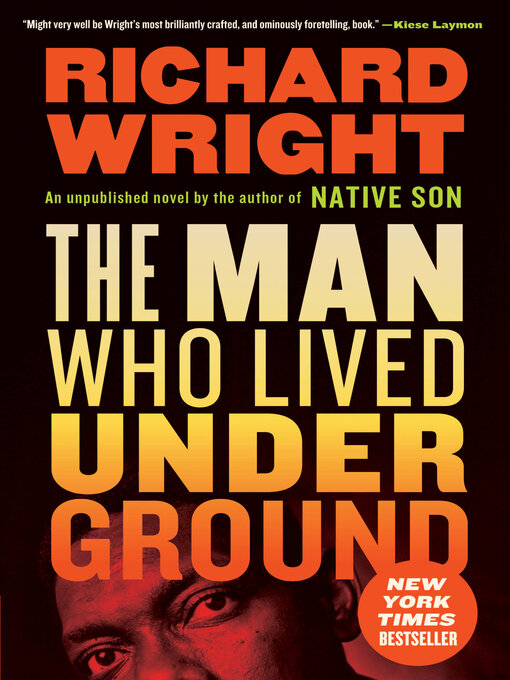New York Times Bestseller • One of the Best Books of the Year: Time magazine, Chicago Tribune, Boston Globe, and Esquire • One of Oprah's 15 Favorite Books of the Year
From the legendary author of Native Son and Black Boy, the novel he was unable to publish during his lifetime—an explosive story of racism, injustice, brutality, and survival. "Not just Wright's masterwork, but also a milestone in African American literature . . . One of those indispensable works that reminds all its readers that, whether we are in the flow of life or somehow separated from it, above- or belowground, we are all human." (Gene Seymour, CNN.com)
"The Man Who Lived Underground reminds us that any 'greatest writers of the 20th century' list that doesn't start and end with Richard Wright is laughable. It might very well be Wright's most brilliantly crafted, and ominously foretelling, book."—Kiese Laymon
Fred Daniels, a Black man, is picked up by the police after a brutal double murder and tortured until he confesses to a crime he did not commit. After signing a confession, he escapes from custody and flees into the city's sewer system.
This is the devastating premise of Richard Wright's scorching novel, The Man Who Lived Underground, written between his landmark books Native Son (1940) and Black Boy (1945), at the height of his creative powers. Now, for the first time, by special arrangement between the Library of America and the author's estate, the full text of the work that meant more to Wright than any other ("I have never written anything in my life that stemmed more from sheer inspiration") is published in the form that he intended, complete with his companion essay, "Memories of My Grandmother." Malcolm Wright, the author's grandson, contributes an afterword.

